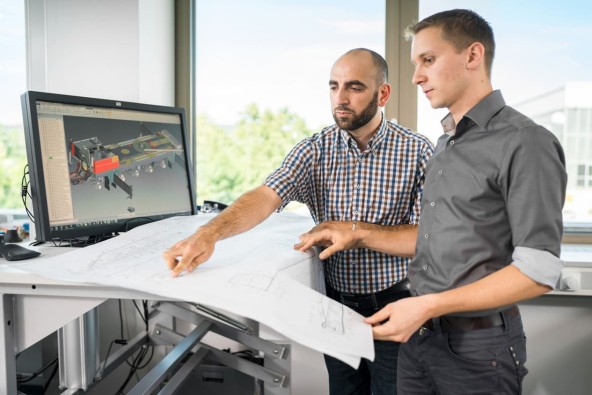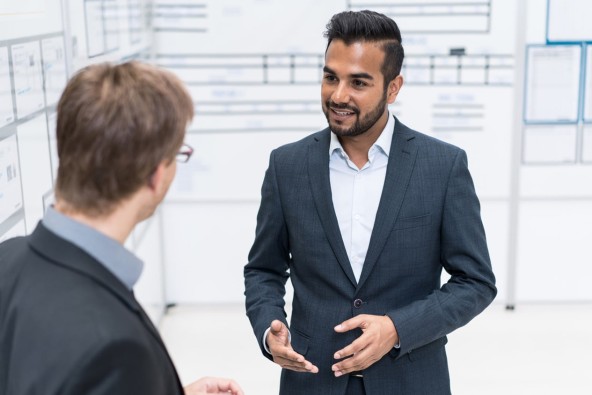I got to know Liebherr during my university studies when I was writing my final thesis. This gave me an insight into the practical side and I quickly knew that I wanted to start my career at Liebherr.
A practice-based final thesis is an important building block towards professional life. At Liebherr, experts from the areas of development, production, customer services or business management help students develop their topics and promote them until fruition.
What is waiting for you here:
Your added value
Personal development and a high range of career opportunities.
There is the possibility of a subsequent permanent employment relationship.
Possibility of financial bonus payments.
You will be one of the drivers of improvements for our future.

Possible areas of employment
In nearly all departments you can write your thesis, especially
- Controlling
- Engineering
- Finance
- Human Resscources
- IT
- Marketing/ Sales
- Mechatronics
- Operational excellence
- Product management
- Quality management
- Research & Development
- Software development (embedded, object oriented programming)
- Testing/Validation/Qualification

Skills you should bring along:
- Running studies in the relevant fields
- Good knowledge of MS Office applications
- Independent, conceptual and structured way of working as well as high level of commitment and team orientation
- Knowledge in the relevant field (ideally first practical experience, for example internship)
- Interest in the relevant field and motivation to do the thesis at Liebherr
- Good communication and softskills

